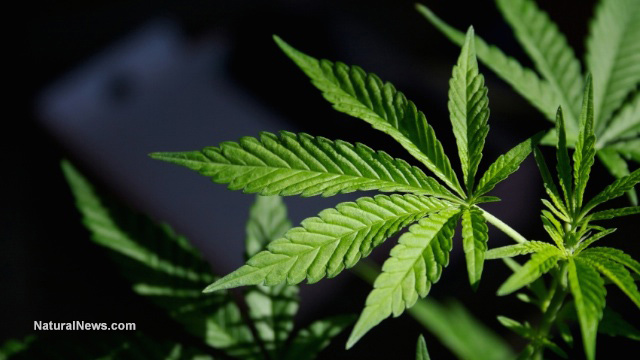The opioid crisis could practically be eliminated with federal laws that decriminalized marijuana and legalized medical marijuana, freeing up capital for the US government that could pay down the deficit.
***Article first published by 'Natural News' on Oct. 4, 2016***
(NaturalNews) Opponents of medical marijuana laws have often claimed that legalizing marijuana use would lead to rampant drug abuse and have an adverse effect on society. Now that these laws have been instituted in some states for a few years, however, evidence is mounting that the opposite is actually true.
In fact, it turns out that medical marijuana is so effective at treating pain that it's keeping many patients off prescription painkillers, which are a bigger threat to society than marijuana use, medical or otherwise, could ever be.
In a recent study, researchers discovered that Medicare reported savings of $165.2 million in 2013 on the prescription medications that are used to treat some of the conditions that can also be treated with marijuana. These included depression, pain, seizures, nausea, glaucoma, anxiety, spasticity and sleep disorders. You may recall that 2013 was the year that 17 states put medical marijuana laws into place, along with the District of Columbia.
These impressive savings accounted for half a percent of the Medicare Part D budget for that year. In the study, all of the claims for prescriptions filed for the medications in question from 2010 to 2013 by Medicare Part D patients were reviewed.
Decreases were noted in the number of prescriptions that were written for medications other than marijuana for most of the conditions studied. For example, in states with legal medical marijuana, the prescriptions for pain medications were lower by a remarkable 1,826 daily doses compared to the states where medical marijuana is not legal. The researchers estimate that Medicare could have saved $468 million on prescription drugs if every state had a medical marijuana law in place.
The sole exception was glaucoma, and this could be due to the fact that marijuana's effects on the condition tend to only last for about an hour. Prescriptions for medicines that marijuana is not used for, such as blood thinners, did not drop.
Researcher Ashley Bradford of the University of Georgia, who was the study's lead author, said: "The results suggest people are really using marijuana as medicine and not just using it for recreational purposes."
Medical marijuana could alleviate the nation's opioid crisis
This is good news for those suffering with these ailments, with marijuana proving to be a safer alternative to conventional medicine. Take the example of opioids, a type of painkiller that has been responsible for a slew of deadly overdoses. A University of Michigan study found that patients with chronic pain who used medical marijuana reported a drop in their use of prescription opioids amounting to 64 percent. They also reported experiencing fewer side effects, and a 45 percent improvement in their quality of life since turning to cannabis for pain management. According to the Centers for Disease Control and Prevention, 40 people die each day from overdosing on these drugs.
Bad news for Big Pharma
Anything that can steer people away from death-inducing prescription painkillers and other dangerous medications is a very positive step, no matter what your personal feelings are about marijuana. Of course, Big Pharma does not share this view, as it threatens their profits, which also explains why they are hoping people won't catch on to the benefits of CBD oil from hemp for issues such as epilepsy.
Not only is marijuana very effective for many people, but it carries very few side effects, and is often more affordable than the pills Big Pharma is trying to push on people. This latest study showing that marijuana is replacing dangerous pharmaceuticals for many people might be bad news for Big Pharma, but it's good news for everybody else.
